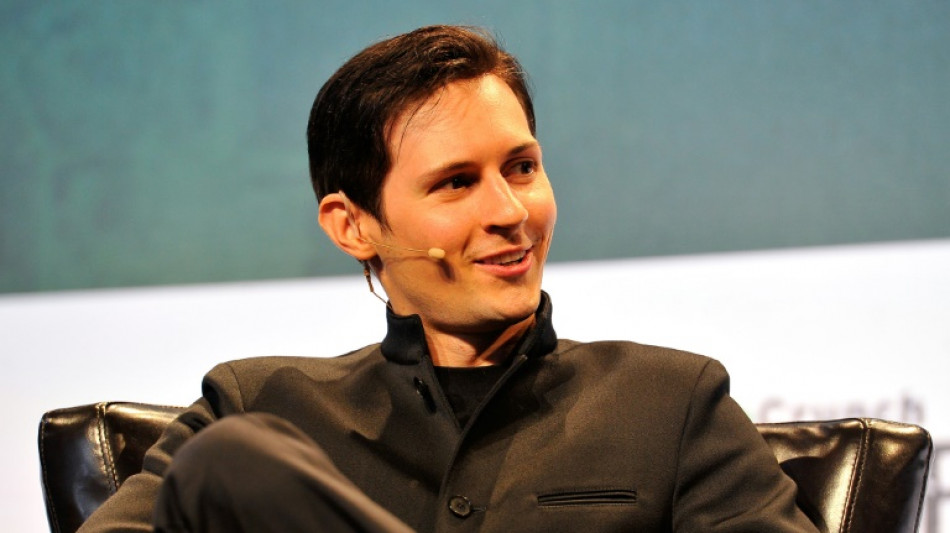
Telegram founder set to learn fate after France arrest

Pavel Durov, the founder and chief of Telegram, is set to learn Wednesday whether he will face charges and even be remanded in custody after his weekend arrest by French authorities over alleged violations at the messaging app.
Durov, 39, was arrested at Le Bourget airport outside Paris late Saturday, and while the judicial authorities have repeatedly extended his initial period of detention, it can last a maximum of 96 hours.
As part of a probe that was confidentially opened on July 8, Durov is being investigated on suspicion of 12 offences related to failing to curb extremist content on Telegram, sources close to the investigation have said.
The tech mogul founded Telegram as he was in the process of quitting his native Russia a decade ago. Its growth has been exponential, with the app now boasting over 900 million users.
An enigmatic figure who rarely speaks in public, Durov is a citizen of Russia, France and the United Arab Emirates, where Telegram is based.
Forbes magazine estimates his current fortune at $15.5 billion, though he proudly promotes the virtues of an ascetic life that includes ice baths and not drinking alcohol or coffee.
Numerous questions have been raised about the timing and circumstances of Durov's detention, in particular why he flew into Paris apparently knowing a warrant had been issued against him.
- 'In no way political' -
In a post on X to address what he called "false information" concerning the case, French President Emmanuel Macron said Durov's arrest "took place as part of an ongoing judicial investigation".
"It is in no way a political decision. It is up to the judges to rule on the matter," he wrote in a highly unusual comment on a legal case.
In Moscow, Kremlin spokesman Dmitry Peskov said the charges were very serious and thus needed "no less serious evidence".
"Otherwise this would be a direct attempt to restrict freedom of communication, and, I might even say, directly intimidate the head of a large company," he said.
The UAE meanwhile said it was "closely following the case" and had requested consular access for its citizen.
Among those voicing support for Durov is fellow tech tycoon and chief executive of X, Elon Musk, who has posted comments under the hashtag #FreePavel.
- 'Nothing to hide' -
When the initial 96-hour questioning period ends, the investigating magistrate can either free Durov or press charges and remand him in custody.
He could also be freed under judicial control that could include restrictions on his movements.
Durov, who has been based in Dubai in recent years, arrived in Paris from the Azerbaijani capital Baku and was planning to have dinner in the French capital, a source close to the case said.
He was accompanied by a bodyguard and a personal assistant who always travel with him, added the source, asking not to be named.
Russian President Vladimir Putin was in Baku on a state visit to Azerbaijan on August 18 and 19, though Peskov has denied that the two met.
France's OFMIN, an office tasked with preventing violence against minors, issued an arrest warrant for Durov in a preliminary investigation into alleged offences including fraud, drug trafficking, cyberbullying, organised crime and promotion of terrorism.
Telegram said in response that "Durov has nothing to hide and travels frequently in Europe".
"Telegram abides by EU laws, including the Digital Services Act -- its moderation is within industry standards," it added.
"It is absurd to claim that a platform or its owner are responsible for abuse of that platform."
Telegram has positioned itself as a "neutral" alternative to US-owned platforms, which have been criticised for their commercial exploitation of users' personal data.
It has also played a key role since Russia's invasion of Ukraine, used actively by politicians and commentators on both sides of the war.
But critics accuse it of hosting often illegal content ranging from extreme sexual imagery to disinformation and narcotics services.
B.Fortunato--PV
